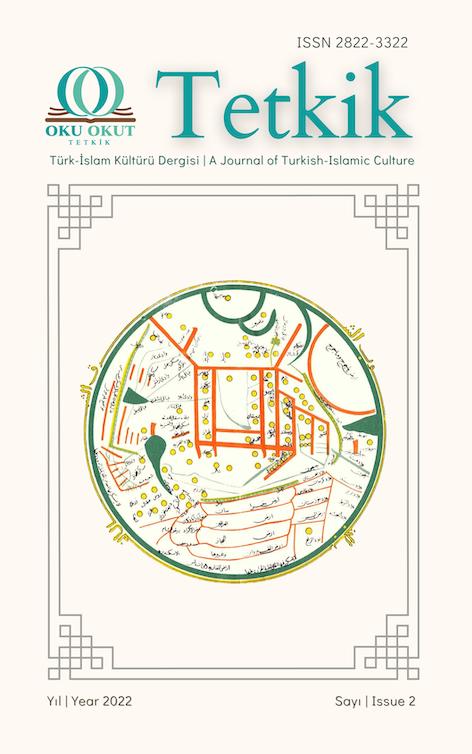Türk Dervişi Yunus Emre’nin Şeriat-Hakikat Makamı Namaz, Abdest, Oruç ve Hac Anlayışı
The Sharia-Ḥaqīqah, Prayer, Ablution, Fasting, and Pilgrimage Understanding of the Turkish Dervish Yunus Emre
Author(s): Emrah DindiSubject(s): Poetry, Middle Ages, Theology and Religion, 13th to 14th Centuries, History of Islam
Published by: Oku Okut Yayınları
Keywords: Sufism; Sharia; Haqiqah; Prayer; Ablution; Fasting; Hajj;
Summary/Abstract: Undoubtedly, it is important to examine and study the religious thought system of Yunus Emre, who had significant impacts on the Islamization and Turkification of Anatolia and the spread of the Yesevī school. Hundreds of articles and books have been written about his religious, mystical, moral, social, cultural, political, historical, scientific, and literary personality. However, no study has yet been conducted on the value and degree of sharīʿa forms, such as prayer, ablution, fasting, and pilgrimage, which their inner meanings is neglected, remain at the purely apparent level, and on his understating of the mode of ḥaqīqah, prayers, ablution, fasting, pilgrimage, etc. as far as we have seen in the literature review. Explicit-implicit, sharīʿa-tariqa, and sharīʿa-ḥaqīqah dualism and approaches to the value and position on the way to being a virtuous ideal human being (i.e., the perfect human) have always been among the basic subjects of the sūfī school. This has from time to time been the subject of a conflict between the jurists, professors, and mullahs, who emphasized the formal -explicit - structure of the religion, and the sūfīs, who prioritized its essence, spirit, and moral goals -esoteric-. In this regard, the understandings of Yunus Emre regarding prayers, ablution, fasting, and pilgrimage specific to the sharīʿa and the authority of ḥaqīqah were examined, and answers were sought to the questions about whether the forms -rituals- of sharīʿa authority were taken lightly or not in the present study. The sources of the present study were Yunus Emre’s Risālah al-Nushiyya, which consists of different copies and editions, and his Dīwān, as well as some other studies. In the present study, in which the literature review method was used, it was found that the rituals of the sharīʿa were a means, entrance, and threshold for moving closer and reaching God. Therefore, the real -ideal- prayers, ablution, and fasting were not actually achieved by washing the skin but by always remembering God in the heart, by clearing the heart, and the real pilgrimage was not in the far -wilderness- namely, in Mecca, but would be achieved by looking for God in the heart and oneself.
Journal: Tetkik
- Issue Year: 2022
- Issue No: 2
- Page Range: 199-228
- Page Count: 30
- Language: Turkish

